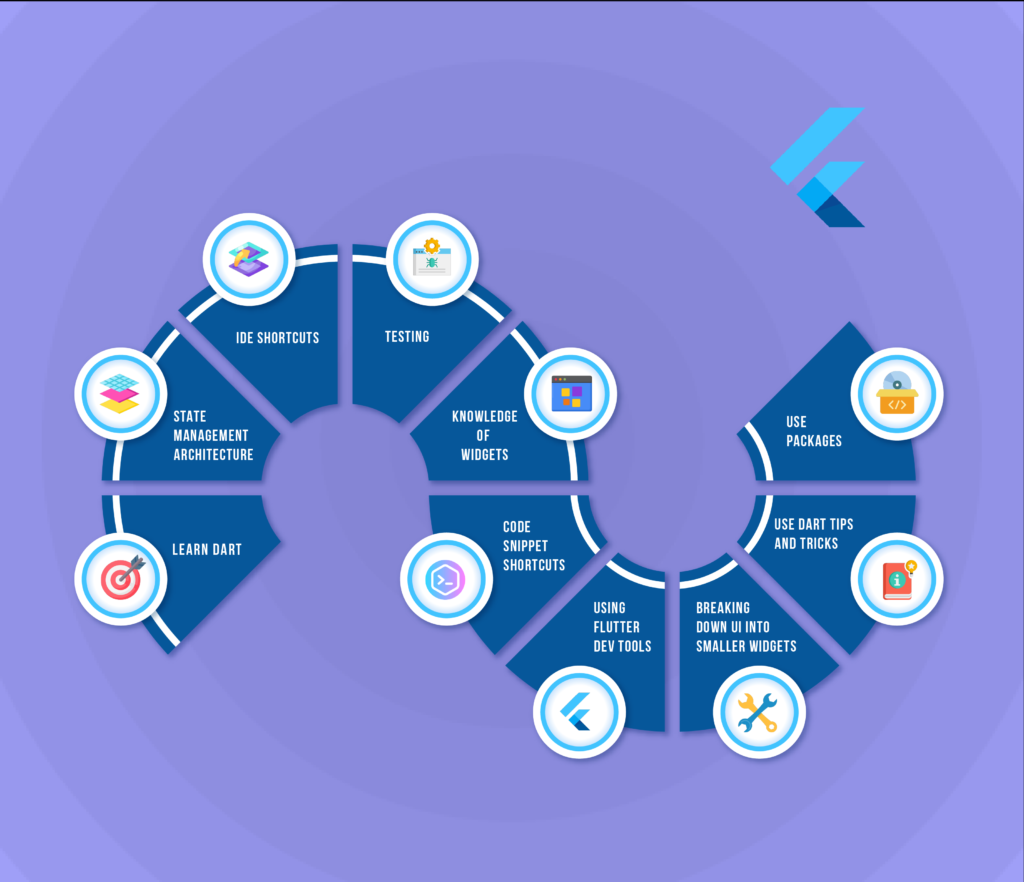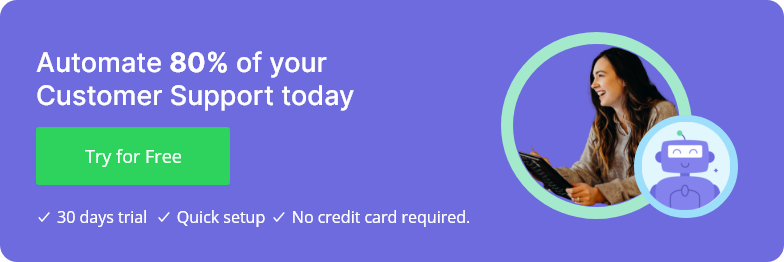Updated on March 20, 2025
Things every Flutter Developer should know:
Learning a new programming language can be tricky. It involves a lot of patience, practice, boot camps and self-learning. But with enough effort, one can learn any programming language that has been devised, including Flutter.
Flutter is Google’s open-source framework whose speciality is the ability to develop multi-platform applications using a single code-base. Released in May 2017, the language quickly grew in popularity because of its versatility and its open source nature. Today, popular apps such as Google Ads, Reflectly and PostMuse have been built using Flutter.
As an engineering team, we have been tinkering with Flutter for a fair bit of time, and here are some of the lessons we feel every Flutter developer should know.

- Learn Dart: Flutter works on the programming language, Dart. So before you dive down to Flutter concepts, you should definitely take some time to learn Dart. Dart uses Object Oriented Programming (OOP). You should master the programming language, it would help you so much time when working as a Flutter Developer. If you aim to work with a Flutter development company, having a strong command of Dart will give you a competitive edge and make collaboration on projects smoother.
- State Management Architecture: As you explore Flutter, there comes a time when you need to share application state between screens, across your app. There are many approaches you can take, and many questions to think about. You can use a different approach, which all serves the same functionality but having a different architecture. As a Flutter developer, you should explore the different state management architecture available and decide on which one would fit your requirement best.
- IDE Shortcuts: – While working on Flutter apps, it is important to know how your IDE works and how you can make yourself more productive. One of the things which help in productivity is IDE Shortcuts. It will save you a ton of time while coding when you can do everything just from your keyboard.
- Testing: Testing is very important when it comes to development. To make sure that your app works flawlessly, you must have a good knowledge of testing. Using the “debugPrint” method will make it easier as it gives you a lot more information than a normal print statement.
- Knowledge of Widgets: Trust me, if you have a good knowledge of which widgets to use in which scenario, it would be life saving. Flutter SDK has their own set of widgets. From creating a simple container, to doing advanced things like Async calls or opening the Camera, widgets would make your life easier. So make sure you explore the inbuilt Flutter widgets as well as some Open source widgets available on the internet.
- Code Snippet Shortcuts: If you are using VS Code to write Dart code, code snippet shortcuts will boost your productivity to the next level. Writing boilerplate code is a lot time consuming so if you learn to use code snippet shortcuts, you do not have to worry about writing boiler plate codes. It will help you write multiple lines of code with just a few alphabets. You can also configure your own snippers, just search for “Configure User Snippets” in VS Code.
- Using Flutter Dev tools: Just like you can inspect a webpage in Chrome, you can inspect your Flutter application through the dev tools menu in VS Code. If you are using Android Studio, it comes with an inbuilt functionality called Flutter inspector. You can inspect your widgets.
- Breaking down UI into smaller widgets: It may happen to you that you are designing the UI of your application and your code looks very messy with a lot of nested codes. Best practice here would be to break down your code into widgets. You can simply do so by right clicking the code block and clicking “Wrap with Widgets”. This will create a new widget of the code, which can be reusable. You can use the same widget in different places of your application.
- Use Dart tips and tricks: We have already told you that in order to master Flutter, you need to be familiar with Dart. But note that there are a few Dart tips and tricks that will surely come in handy as and when you start developing using Flutter.
Reduce response time, enhance support workflows, and improve customer satisfaction with AI-driven email ticketing from Kommunicate!Here are a few Dart tricks that you should be familiar with:
- Dart supports string multiplication.
- You can use constructors and initializer lists for smoother APIs.
- You can use underscores for unused function arguments.
- Dart supports using of functions as arguments and anonymous functions.
- With Dart, you can implement a “call” method to your Dart Classes. This enables you to call them as a function.
- Use Packages: Flutter is a relatively new programming language compared to Java, and if you want to build an application fast, you can use all the help you need. This is where Dart packages come into the picture. Packages are open source libraries of code that other developers have created, which you can incorporate into your own project. You can add a Flutter package to your website by simply visiting pub.dartlang.org and searching for the package you need. If you have any questions about a particular package, all you need to do is reach out to the developers whose email ids are available on the website. Alternatively, you can also write packages of your own and publish it on the site, thus contributing to the open-source community.
And there you have it. Ten of the most important we have learnt as Flutter developers. If you have anything more to add, feel free to write to us on support@kommunicate.io and we will be more than happy to add your inputs to the blog.
Suggested Read: How to Create and Activate Chatbot in Flutter
At Kommunicate, we are envisioning a world-beating customer support solution to empower the new era of customer support. We would love to have you onboard to have a first-hand experience of Kommunicate. You can signup here and start delighting your customers right away.





